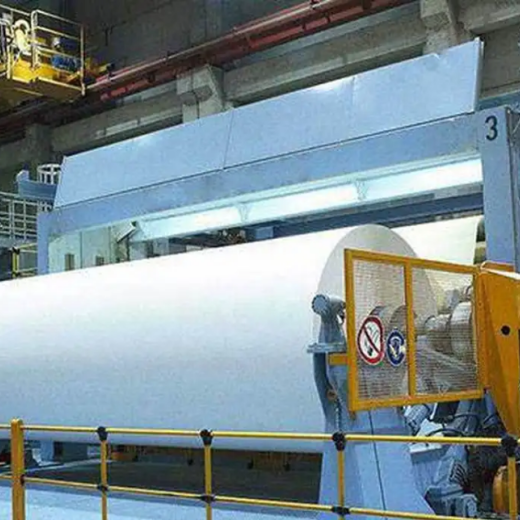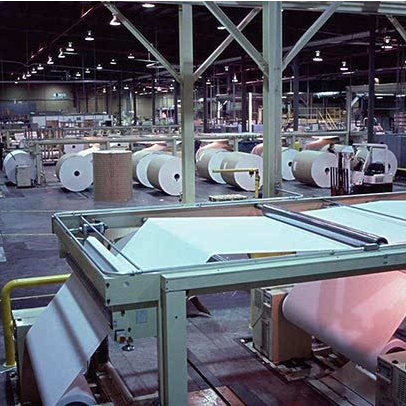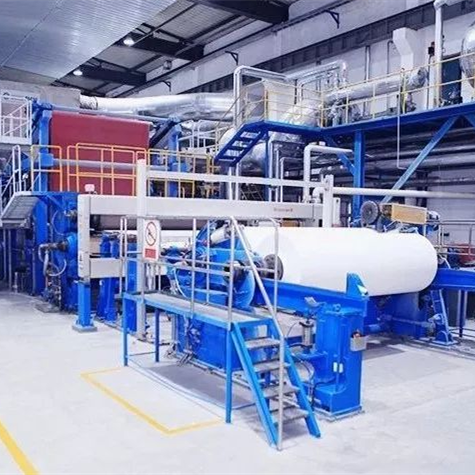High speed, high temperature, heavy load, paper mill paper equipment to choose how to grease?
In recent years, with the rapid development of China's paper industry, some large modern paper machines, board machines and other complete sets of equipment have been introduced from abroad.
The paper industry is determined by its process, and the equipment cluster and monomer are relatively large, and the degree of continuity and automation is high. Therefore, once damaged often have a huge impact.
The use of papermaking equipment is relatively harsh, belonging to high-speed, heavy load, paper machine cadre temperature is high, papermaking process a large number of contact with water, high temperature, steam, dust, so the lubricant put forward higher requirements.
The lubrication of paper machinery and equipment is divided into two categories: pulp machinery and paper machinery.
First, pulp mechanical lubrication
The lubrication characteristics of pulp machinery are wet working environment, high temperature, and impact load, generally require better heat resistance, oxidation resistance, anti-emulsification and rust resistance, can use the viscosity of 46-100 anti-oxygen rust lubricating oil, can also be used in heat resistance and mechanical stability of good composite calcium, sodium or lithium grease, there are also the use of molybdenum disulfide or graphite grease, Industrial lubricating oil can be selected according to the performance requirements of the equipment.
The working temperature of the bearings and gears of the pulp cooking equipment is high, and industrial Gear Oil or grease is often used to lubricate them.
In general, the lubrication parts of pulp machinery are bearings, worm gear, reducer, closed, open gear and so on.
Second, paper machinery lubrication
The lubrication point of the paper machine is closed in principle, and each bearing in the wet section of the paper machine has a closed bearing housing waterproof intrusion, while avoiding cross contamination caused by grease overflow. The grease lubrication points in the wet section should be inspected by manual inspection regularly.
The lubrication system often refers to the central lubrication station of the dry section and all the oil transmission and supply pipelines and oil injection devices. Due to the high temperature of the dry section of the paper machine during operation, the central lubrication station needs to transport lubricating oil to the bearings by pressure for lubrication and heat dissipation.
The lubricating parts of the paper machine are transmission gearbox, worm gear gearbox, general plain bearing, rolling bearing, exhaust fan, wet section rolling bearing, steel wire rope and central lubrication station (dry section lubrication) oil.
High temperature operation will accelerate the loss of additives and Base Oil, the working temperature of the general lubricating oil is 30 to 80 ° C, the life of the lubricating oil is closely related to its working temperature, experience tells us that when the working oil temperature exceeds 60 ° C, every rise of 18 degrees Fahrenheit (7.8 degrees Celsius), the service life of the oil will be halved.
Third, how does the paper mill choose lubricating oil?
The following factors must be considered when selecting paper machine lubricants:
1, hydrolysis stability
Water is the biggest hazard in the lubrication system of paper machine. When the small cracks on the bearing surface contact with water, the fatigue rate of the bearing increases, causing pitting, early failure and abnormal shutdown, resulting in huge losses. High-quality paper machine circulating lubricating oil must have excellent hydrolytic stability, and appropriate oil selection can help reduce water into the bearing seat and prevent bearing fatigue and early failure.
2. Filtrability
Replacing the filter is time-consuming and costly, and the high replacement frequency is a signal of poor oil filtration and poor system maintenance.
3, stable viscosity
Because the bearings in the paper machine operate at very high temperatures for a long time, it is important to ensure that the oil maintains a stable viscosity during transportation and operation. The key is that the composition of the oil should have good oxidation stability and thermal stability, and the design of the centralized lubrication system should have a heating or cooling device to maintain a relatively constant working temperature of the system and ensure the viscosity of the oil.
4. Deposition control ability
When the oil is aged, it will decompose through various mechanisms and form by-products, which will affect the performance of the oil. These by-products will increase the viscosity of the oil and clog the filter. When deposited on moving parts such as bearings, they can increase contact pressure, damage equipment, and even cause downtime. Therefore, the formulation of the oil must have good sediment control ability.








